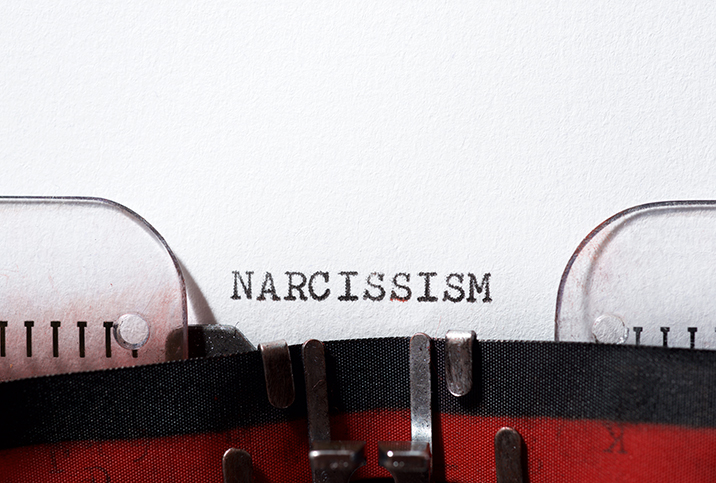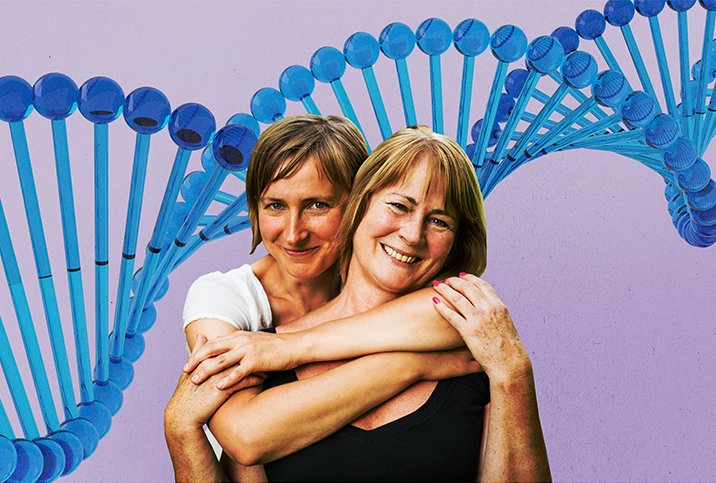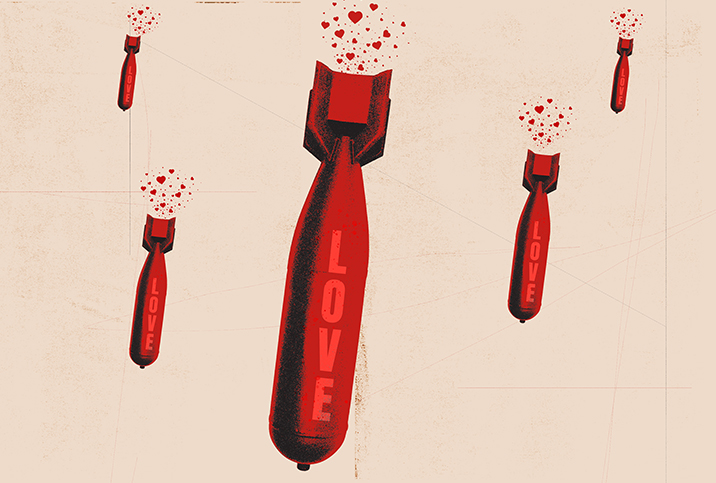Have Narcissistic Parents Destroyed Your Love Live?

Before I met my husband, I had a type: brooding, misunderstood and charming like a character on a CW show. I was drawn to grand gestures followed by indifference and thrived on being with someone who was so into me one minute and couldn't bother to text me back the next. I felt comfortable with men who put me on a pedestal before crashing it down. More simply put, my type was a narcissist because they felt like home.
What is a narcissist?
"Narcissist" has been wedged into our dating lexicon somewhere between "love bombing" and "left on read." Takes too many selfies? Total narcissist. Spends the entire first date talking about themself to the point where it almost feels like you're watching a one-person show? Classic narcissist. Takes you out to a really nice dinner and then ghosts you? The narcissist strikes again.
While writing off a bad date by labeling them as a narcissist might help you move on, a personality disorder should be formally diagnosed by a psychiatrist.
"Narcissistic personality disorder is when someone is pervasively grandiose, needs near-constant admiration/attention and is incapable of true empathy," explained Jami Dumler, L.C.S.W., who practices in Bethlehem, Pennsylvania.
Were you raised by a narcissist?
"If you felt you were but an extension to your parents, your needs didn't matter as much as theirs, they made you feel guilty and shame for your feelings, you are most likely dealing with narcissistic-ish parents," said Iona Monk, M.A., a registered clinical counselor based in Vancouver, British Columbia.
Chase Cassine, L.C.S.W., who practices in New Orleans, identified other traits and tactics of narcissistic parents: "Passive-aggressive behavior, in the form of backhanded compliments, gaslighting, silent treatment, guilt trip and triangulate within families, as a means to avoid confrontation and exert their dominance in a covert way to control their children.
"Narcissistic parents do not want their children to become independent and develop their own sense of self," Cassine added.
The side effects of growing up with narcissistic parents
It's often been said a child's relationship with their parents is where they learn how to love and trust. So what happens when you grow up with a narcissist?
Well, it can often lead to a fear of attaching to others.
"[Children of narcissists] learn to develop what is called a 'role self,' which is the role or child they need to be to best interact with their parents in order to survive," Dumler said. "This may include staying quiet, holding in feelings, putting the parent's needs first or allowing unhealthy, toxic, boundary-crossing behavior from the parent in order to keep the peace."
It can be difficult for a child of a narcissist to rewrite the relationship roadmap of their youth. Children of narcissists often grow up believing the manipulation they were raised with is love.
"Children who grew up with narcissistic parents will likely also struggle to set boundaries, validate and voice their own feelings, and may measure their worth by making others happy before themselves, which can be exposed and taken advantage of by manipulative people," Dumler explained.
Understanding your attraction to narcissists
If you were raised by a narcissist, there's a good chance you might find yourself attracted to one or find yourself drawn to unhealthy relationships in general, especially if you're unaware of your parent's narcissism. You might find yourself seeking narcissistic qualities in a partner.
"Attractions of deprivation are caused by traumatic experiences in childhood, and we all have them. We feel most drawn to people that embody the worst emotional characteristics of our primary caregivers," said Mark Stubbles, an anxiety and wellness counselor based in Windsor, U.K.
How to stop dating narcissistic partners
The best way to stop dating narcissists is to be aware of their red flags, such as love bombing, future faking, emotional unavailability, lack of empathy, hypersensitivity, self-centeredness, and controlling and passive-aggressive behavior, Cassine said.
Children of narcissists might have a hard time recognizing these red flags, as they might struggle to distinguish the difference between romance and manipulation due to their upbringing.
"If the words don't match the actions, it is manipulation," Cassine said. "Therefore, if there is a habitual pattern of incongruity between what is said and what is done, then you are being lied to, and if the person does not respect your boundaries and consistently violates them, it's time to reevaluate this relationship."
Breaking your patterns
Just because you were raised by a narcissist doesn't mean you'll end up with one and continue this cycle with your own children. Nor does it mean you are destined to be in unhealthy relationships. Once I recognized my pattern, I was able to heal and meet my husband, who has shown me nothing but green flags and kindness with no strings attached from our first date. But I wasn't ready for him until I worked on myself.
"As a child of a narcissist, your job is to also establish these healthy green flags within yourself. This can be done through therapy, self-reflection, self-help resources such as podcasts and therapeutic self-help books, as well as joining different support groups like CoDA [Co-Dependents Anonymous]," Dumler suggested.
It's possible to get into a healthy relationship.
"On your end, be intentional and create boundaries in your pursuit of finding a partner that is invested in developing a healthy, reciprocal relationship built on trust, respect, honesty and open communication, not a one-sided relationship that leaves you chronically feeling rejected, shame, resentment, depressed mood and anxious," Cassine advised.


















